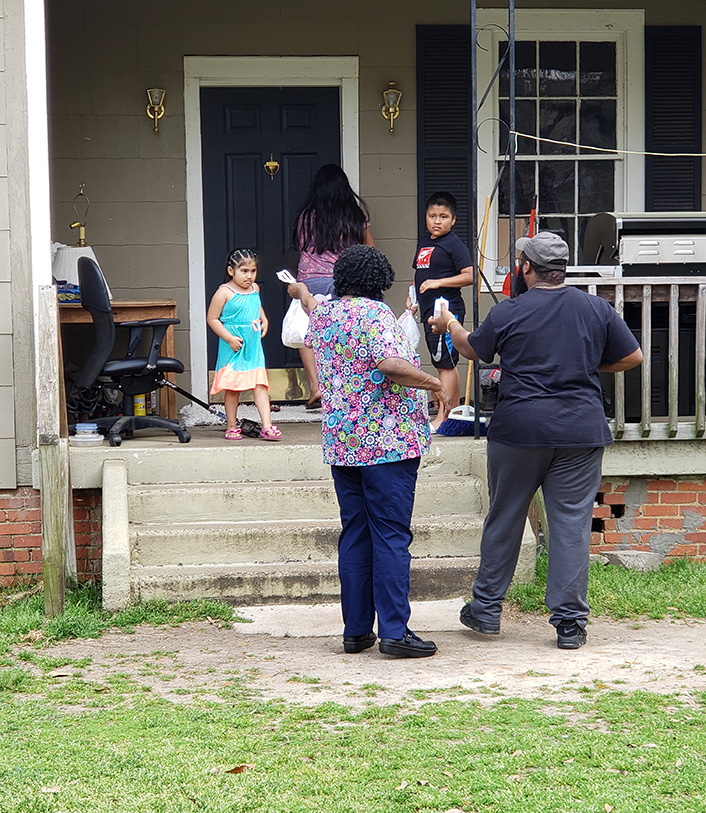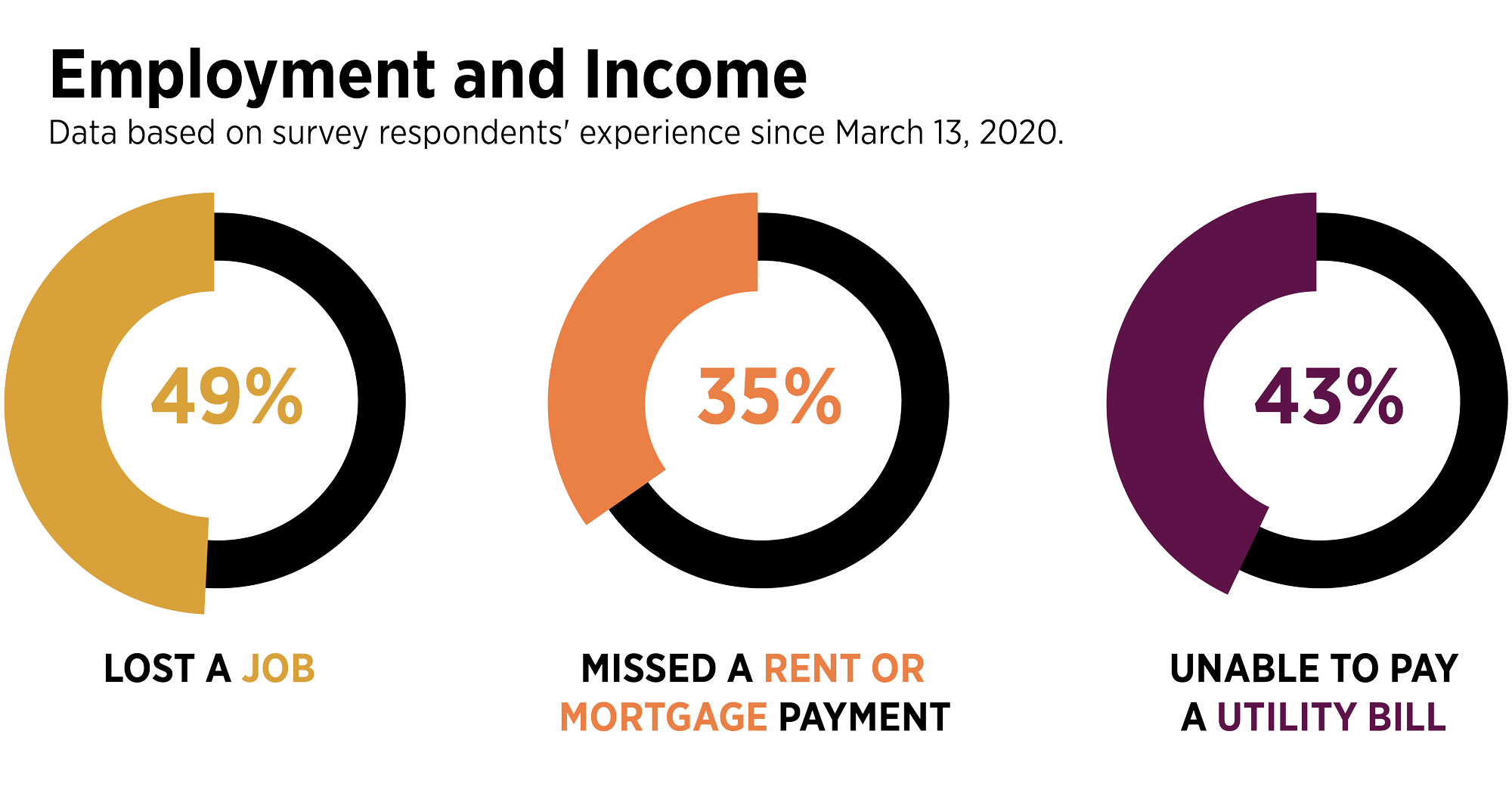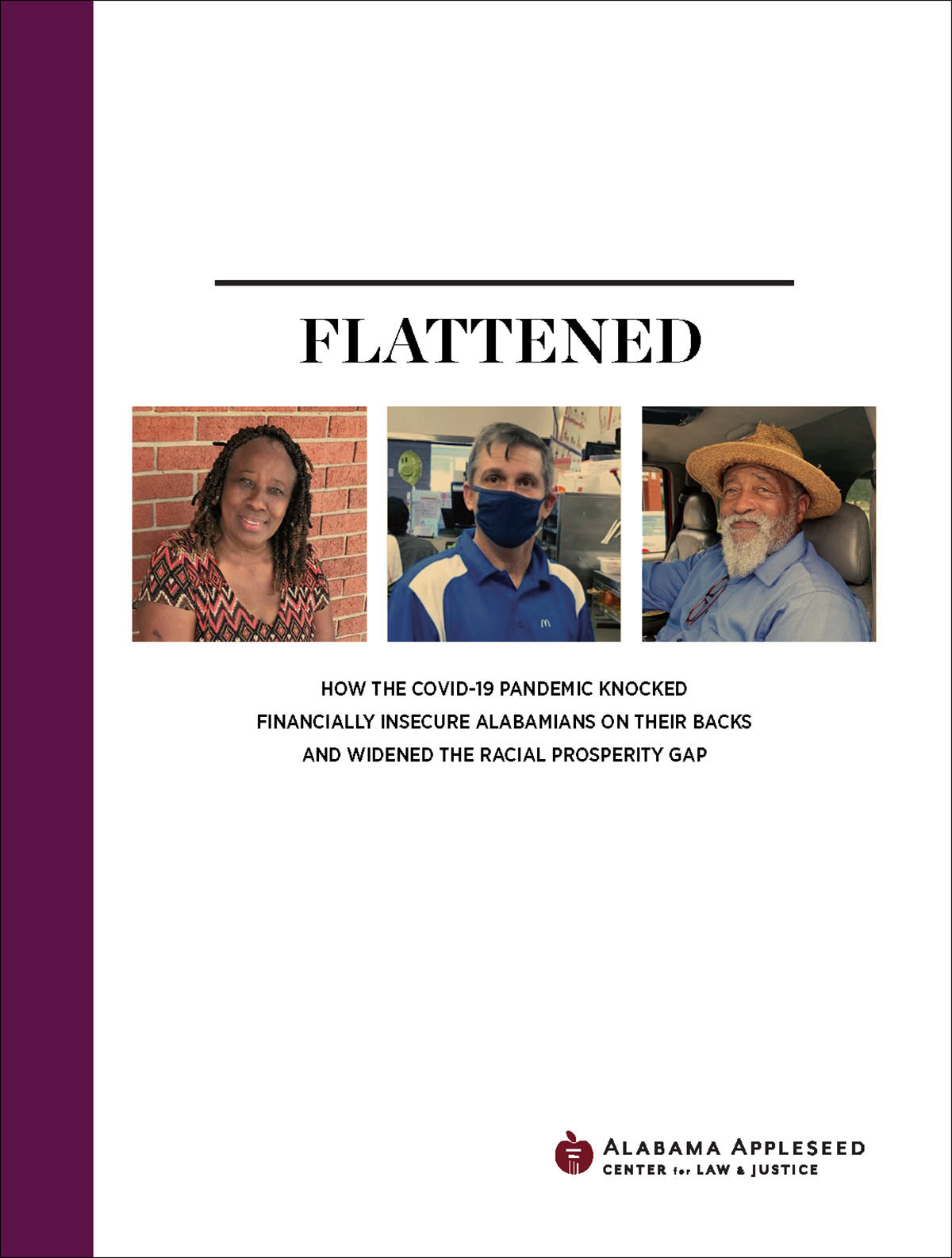Flattened
How the COVID-19 pandemic knocked financially insecure Alabamians on their backs and widened the racial prosperity gap
How the COVID-19 pandemic knocked financially insecure Alabamians on their backs and widened the racial prosperity gap
The COVID-19 pandemic has cost Alabamians their lives, health, jobs, savings, and stability. The pain has not been evenly distributed, with disparities appearing along fault lines that seem baked into Alabama’s very foundation. Poor Alabamians have struggled to keep things together, while people of means have mostly gotten by. Black Alabamians have faced a far bleaker reality on average than their white peers. Rural Black Alabamians have suffered worst of all.
Alabama cannot recover unless individuals and families recover. Our businesses cannot recover unless employees are stable and healthy enough to return to work. Our future cannot be prosperous unless children are housed, fed, and able to learn. Supporting Alabamians’ health, safety, and prosperity must be lawmakers’ top priority in 2021.
> Black Alabamians were more likely than whites to work in essential occupations where they risked exposure to the virus, more likely to work in low-paying jobs that experienced high levels of layoffs, and less likely to have access to healthcare.
> Nearly half had lost their jobs since March 13, but only about four in ten of those who applied for unemployment benefits received them, usually after weeks of waiting.
> Seven out of ten respondents could not pay a recurring expense such as mortgage, rent, or utility bill because because their financial circumstances had changed.
> The majority needed food assistance. A few even spent time in jail after falling behind on fines, fees, or court costs.
“The crisis devastated my well being … not having a job, not knowing if my family and I will eat, no money for medications, gas, medical bills … not being paid and having to sell items from my house just to live. My blood pressure stays elevated and I am experiencing anxiety on a regular basis. I am not asking for a hand out, I just want a job in order to be a productive citizen and take care of my family.”
“I am a single, female that stayed home to raise a family for 19 years, so I did not have a lot in retirement and I am just beginning to build my social security earnings after divorcing 5 years ago. It is detrimental to lose nearly 27% of the little retirement I have due to the pandemic crisis causing the economy to fall.”
“I need health care. It’s hard to remain healthy when you are refused assistance because you don’t have insurance. And you have to pay to stay out of jail.”
“I have been using extra money on food and clothing for my kids. it is hard to pay a $360.00 light bill living on a fixed income of $785.00”
“Reduced hours has made it hard to pay bills, really to do anything. It has stress[ed] my family and myself out. Can’t sleep, just thinking what would come next. We need lawmakers to stop fighting and do the right thing for the people.”
“I need to overcome this CV-19 virus, I am asthmatic and I need health care that’s affordable. I need a job that pays livable wages.”
“People like me who work for themselves as an independent contractor have been largely overlooked by the system. The amount of money from the Federal government is nowhere close to the income lost. If we didn’t already know, then we sure know now the need for universal healthcare in this country. If I get sick, it will mean either bankruptcy or death … or both.”
“Single mom, immune compromised and forced to put her kids in school and be exposed to covid19 so she can work also exposing herself and no aftercare or early buses mean full-time work is going to be hard to find also fiance’s sitting in prison on a parole [violation] with asthma and a liver disorder waiting to die of Corona we are about to lose everything and our life is over”
“I live on a marginal income from SS, and am trying to train with help of Goodwill, Easterseals to find a new skill of work. However, I still need assistance from family to make through to end of the month. Due to COVID-19 I was unable to depend on my family for help. There are bills outstanding but arrangements made. I am not homeless, hungry, or broken yet, but there are circumstances like $16 a month SNAP benefits, that don’t get me through.”
Alabama Appleseed Center for Law & Justice
400 South Union Street, Suite 355
Montgomery, Alabama 36104
2 Office Park Circle, Suite 10
Birmingham, AL 35223
Phone: (205) 963-7999
admin@alabamaappleseed.org



